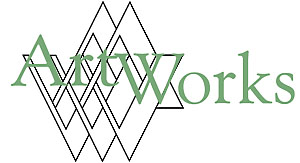
 |
Winter 2002-03 |
|
Mullens mural painter Accessible recreation guide Following the dream Disabilities guidance Cultural Facilities grant awards |
Getting the gig: Tips for successful bookingPennPAT, also known as Pennsylvania Performing Arts on Tour, a program of the Mid Atlantic Arts Foundation, has put together a list of suggestions for artists and those who book artists. They are here reprinted with permission from the Spring 2002 issue of Mid Atlantic Artist. 1. Have a good attitude and believe in yourself. 2. Persistence: Getting engagements — even one — takes time and work. 3. Be Organized: Keep a database. Good records should include facility name, location and contact information. 4. Pre-plan the call or meeting: Before talking with presenters, familiarize yourself with the venues and people you will be contacting. Visit venue websites to find out what sort of series or events the organization has been presenting. Make sure you have the correct pronunciation of the contact person’s name. 5. Find a good time to contact presenters: Do not leave lengthy voice-mails. It’s better to find out when the presenter is available and try again. E-mail is a great method of communication, but check with the presenter on how they want to be contacted. Some prefer e-mail, some prefer phone, some like fax or mail. 6. Don’t start by asking the presenter if they like your music or performance: Instead ask if your style is a good fit for them. This starts the conversation with what they present and what interests them. Ask about other organizations that might be interested in a block booking. 7. Keep the conversations short: Find out the presenter’s booking time frame: When do they begin planning the next season? When do they need to go to contract? When are grant deadlines? Do they book pickup dates for the current season? When should you make follow up calls? 8. After contacting the presenter, send what you’ve promised as soon as possible. Always have a supply of promotional and marketing materials, CDs and videos. 9. Return calls and emails promptly: If you can’t commit or need more time to provide an answer, find out from the presenter how long you can have to get back to them. 10. Presenters have a hard job: They have to consider many factors when developing their season. They have to work with a fixed budget, answer to a board and program an interesting season, all the while considering their audiences’ interests. 11. Be friendly and understanding: Presenters don’t want to deal with people who are difficult and pushy, and presenters talk to each other often. 12. Think long term: If you are turned down for this season, don’t take it personally. There are many factors involved in making series selections. Ask when you can start talking about the next season. Since presenters move around, your performance may be a better fit at a presenter’s next job. 13. At the engagement, thank the presenter, sound crew, etc: If possible, thank them from the stage. Interact personally with the staff. If there are technical difficulties or lack of cooperation with the staff, try to calmly work things out. 14. Network with other artists: Although booking is competitive, communication with other artists can lead to new engagement opportunities or project collaborations. If you are out of a presenter’s fee range or unavailable for an engagement, recommend a smaller group with a similar style. Communicating with other artists can help you stay current with presenters’ information and give you new ideas for your booking technique. 15. Don’t give up. Contact the Mid Atlantic Arts Foundation at their website: www.midatlanticarts.org. |